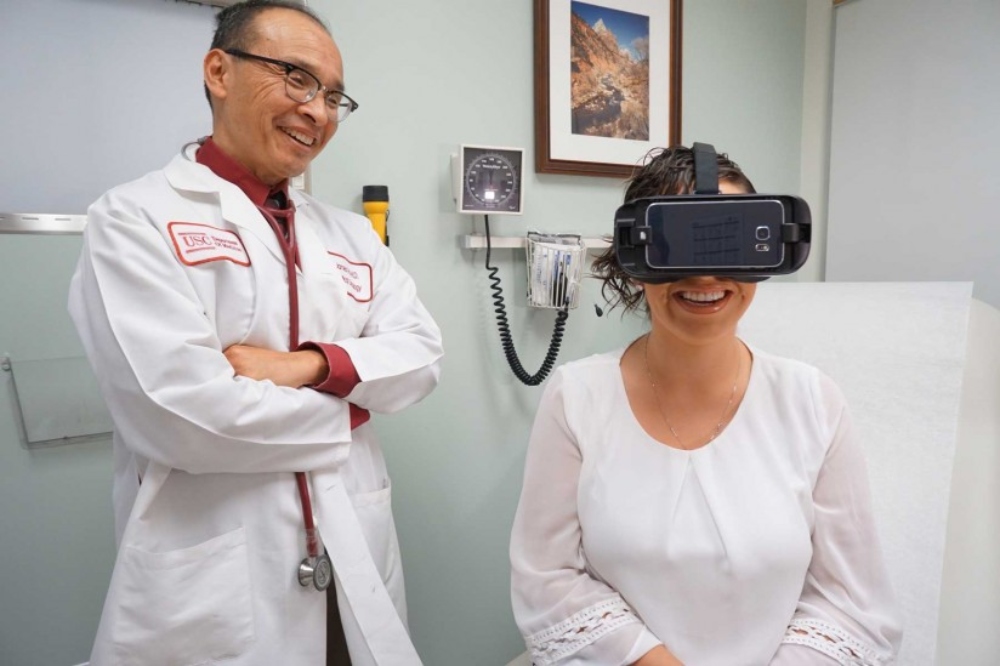Comments
- No comments found

The world of healthcare is undergoing a revolutionary transformation, and virtual reality (VR) is at the forefront of this change.
In recent years, VR technology has found a unique and invaluable application in the field of oncology. As we navigate the complexities of cancer treatment, VR is proving to be a powerful tool in enhancing patient care, diagnosis, therapy, and medical education. In this article, we explore how virtual reality is reshaping the landscape of oncology, offering new hope and improved outcomes for both patients and healthcare professionals.
Understanding a cancer diagnosis and treatment options can be overwhelming for patients and their families. Virtual reality is changing this by offering an immersive educational experience. Patients can now step into a virtual world that explains their diagnosis, treatment plans, and potential outcomes in a clear and visual manner. This empowers patients to make more informed decisions about their care.
Cancer treatments such as chemotherapy and radiation therapy often come with physical and emotional discomfort. Virtual reality can be used as a form of distraction therapy, immersing patients in calming and engaging environments during treatment sessions. This distraction not only reduces anxiety but also helps in managing pain, making the treatment process more tolerable.
For cancer surgeries, VR allows surgeons to visualize and plan procedures in a three-dimensional, high-definition virtual space. This technology enables surgeons to study the tumor's exact location, surrounding anatomy, and potential complications before the actual operation. As a result, surgeries become more precise and less invasive, leading to quicker recoveries and better outcomes for patients.
The next generation of oncologists and surgeons is benefitting from VR-based training programs. These immersive simulations offer a safe environment to practice complex surgical procedures and develop critical skills. Medical students and residents can gain valuable experience before they step into the operating room, ultimately improving patient safety and outcomes.
Cancer can take a toll on patients' mental health. VR offers a platform for therapeutic interventions such as mindfulness and stress reduction exercises. Patients can escape the confines of a hospital room and explore serene virtual environments, providing a much-needed psychological break during their cancer journey.
Telemedicine has become increasingly important, especially in oncology where patients may need frequent consultations. VR technology enhances the telehealth experience by creating a more immersive and interactive environment for doctor-patient interactions. This not only improves accessibility for patients in remote areas but also enhances the quality of care.
Virtual reality plays a pivotal role in accelerating cancer research and drug development. Researchers can simulate the behavior of cancer cells, test potential treatments, and study their effects in a virtual laboratory. This significantly expedites the drug discovery process and holds promise for more targeted and effective cancer therapies.
Cancer doesn't just affect patients; it impacts their loved ones as well. VR can provide educational resources and support to caregivers, helping them understand the patient's journey and offering tools for managing caregiver stress and burnout.
Some patients are documenting their cancer journeys in VR journals. These immersive records allow patients to share their experiences with others and provide valuable insights into the challenges and triumphs of living with cancer. It fosters a sense of community and support among patients and survivors.
While the potential of VR in oncology is immense, it's essential to address ethical concerns, such as patient privacy and data security. Additionally, ensuring that VR technology is accessible to all patients, regardless of their economic or geographic circumstances, remains a critical challenge that the healthcare industry must address.
Virtual reality is rapidly reshaping the field of oncology, offering a range of innovative solutions that benefit both patients and healthcare professionals. From improved patient education to enhanced surgical precision, VR is elevating the standard of care in cancer treatment and research. As technology continues to advance, the potential for VR in oncology is limitless, promising a brighter future for cancer patients worldwide.
In the quest to conquer cancer, virtual reality stands as a powerful ally, providing new tools and approaches that may one day lead us to a world where cancer is no longer a formidable foe. The synergy between technology and medicine is ushering in an era of hope and progress, transforming the way we understand, diagnose, and treat this complex disease.
Leave your comments
Post comment as a guest